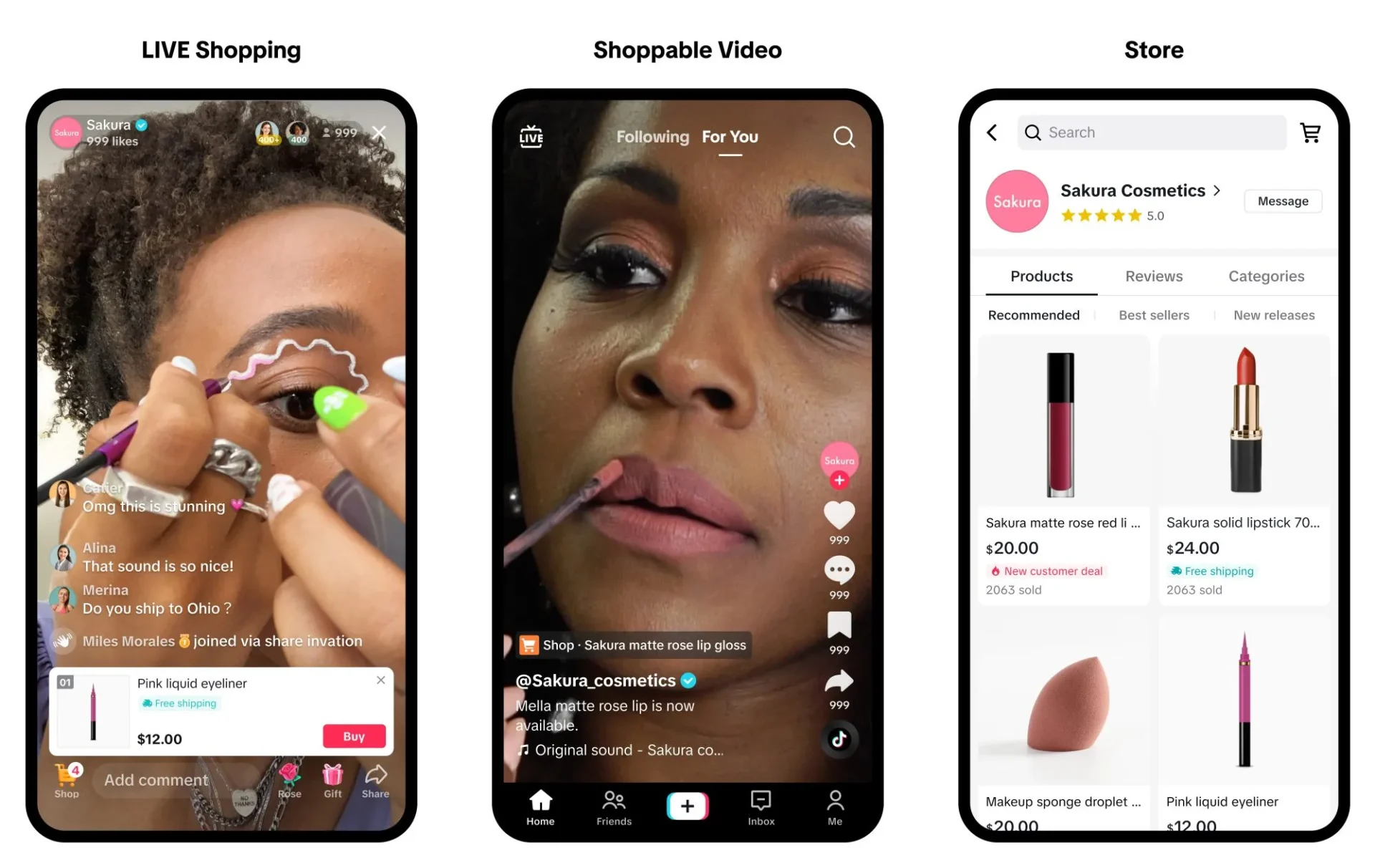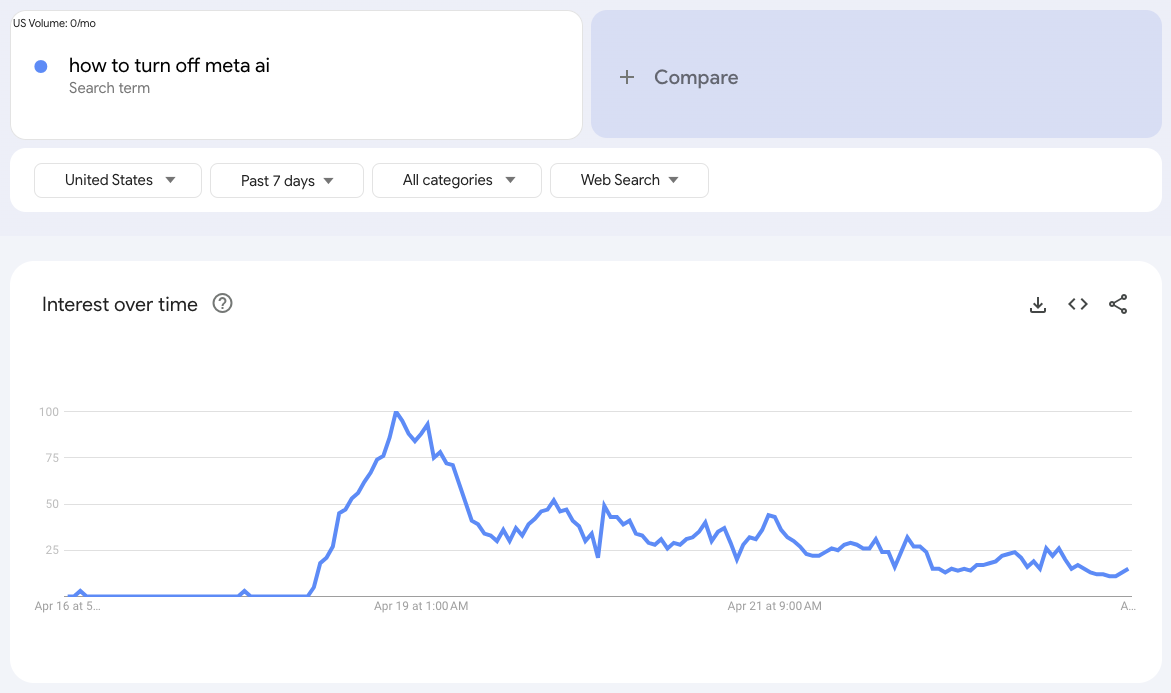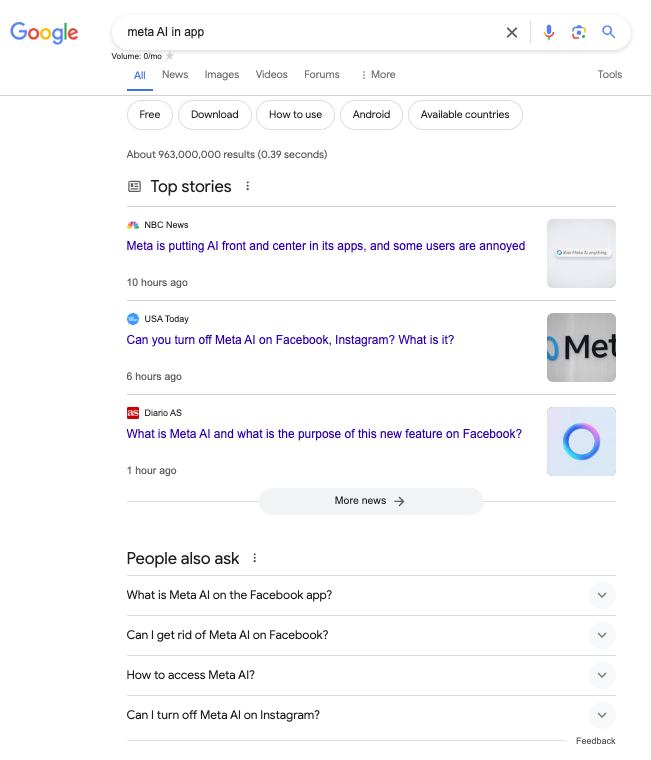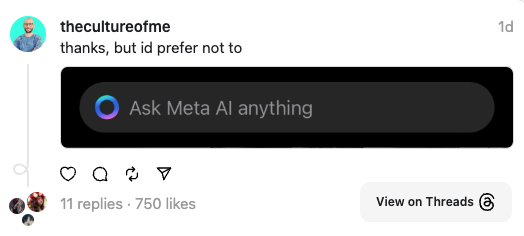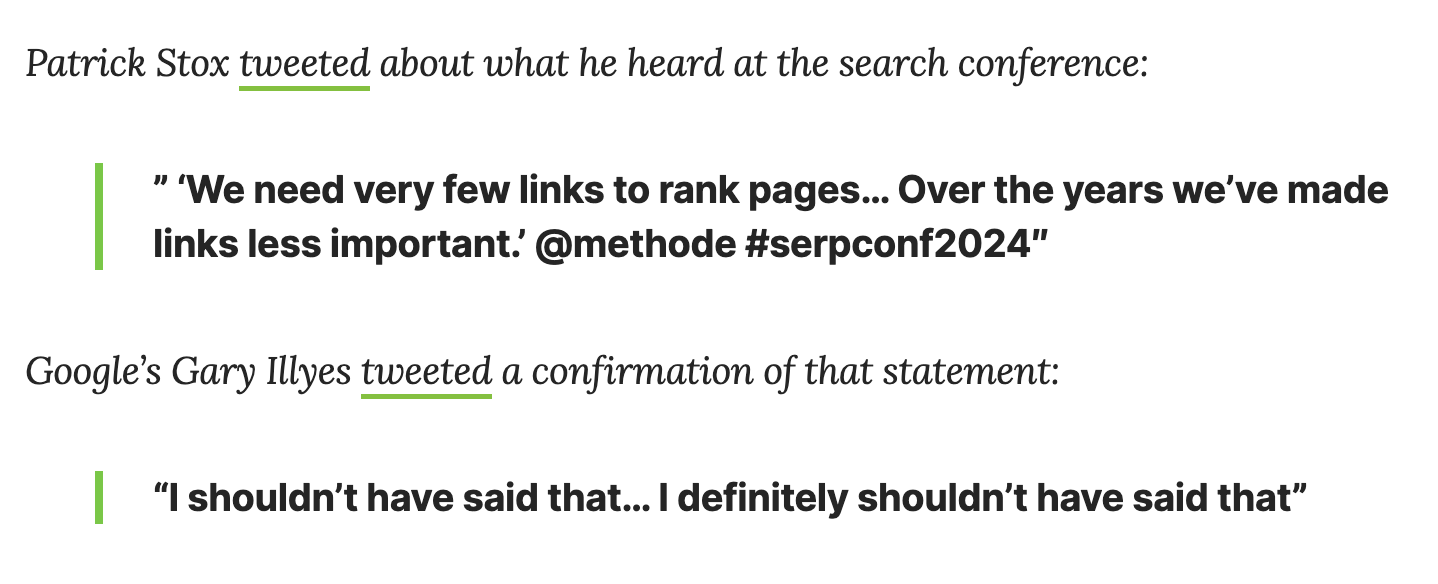Local Memo: TikTok’s Uncertain Future in the U.S.
In this week’s post, learn about Congress’s recent passing of a bill to force the sale of TikTok by ByteDance or ban it from the U.S.; TikTok Shop’s lucrative market posing competition to Amazon, and the fraudulent practices; Meta’s new AI assistant across its leading social platforms; and Google confirming links don’t matter as much as they used to.
TikTok’s Uncertain Future in the U.S.
The News
Late last week, the House of Representatives passed a bill requiring the sale of TikTok within a nine-month window, up from the previous bill that was passed allotting a six-month span. Yesterday, the Senate approved the bill and folded it into a larger package that includes foreign aid to Ukraine, Israel, and Taiwan. President Biden signed the bill earlier today.
If ByteDance, the owner of TikTok, cannot sell the company within 270 days of today, when the bill went into effect, TikTok will be banned in the United States.
Why This Matters
TikTok also boasts more than 150 million U.S. users. This bill, if signed by Biden and remains unscathed in the courts, will alter who owns TikTok or if the social giant will even exist in the U.S.
As reported in our Consumer Behavior Index (CBI) research, TikTok is the second most popular platform (62%) behind Instagram for consumers ages 18-24 to search for local businesses.
For established brands, a potential TikTok ban means they’d have to adjust established marketing campaigns and partnerships on the platform. They’d have to reallocate resources toward alternative platforms like Instagram or YouTube, which already use short-form videos, one of the most popular content forms for younger generations.
The Lucrative Space of TikTok Shop and Its Chinese Merchant Loopholes
The News
Many retailers, particularly Chinese merchants, are finding substantial success with TikTok Shop, a feature that allows users to purchase items directly through TikTok. Sales far surpassing that of their traditional Amazon forum.
Courtesy of TechCrunch
Much of this success is related to the unique short-form content style of selling. Despite potential political risks associated with TikTok’s Chinese parent company, ByteDance, Chinese sellers perceive TikTok as a lucrative opportunity to leverage its popularity for online sales, similar to their success on Amazon.
TikTok Shop prioritizes sellers with U.S. connections, aligning with its strategy to build trust and avoid political scrutiny. TikTok is also prioritizing the customer experience, focusing on shorter shipping time requirements, which causes challenges for sellers based in China. Merchants who wish to sell on TikTok Shop either need to be a registered U.S. corporate entity or can validate substantial sales on other online platforms like Amazon.
However, some Chinese merchants have devised ways to exploit loopholes in TikTok’s rules, leading to restrictive actions from the platform to maintain integrity. Some Chinese merchants resort to creative methods to avoid restrictions, such as finding U.S. citizens to register stores on TikTok or deploying virtual warehouses to hide origins.
TikTok actively combats fraudulent practices to maintain its integrity. The platform’s efforts include stepping up enforcement against these virtual warehouses and requiring U.S. stores to submit bank statements to validate transactions. If it finds sellers violating any of these policies, it takes action as far as removing the shop from TikTok altogether.
Why This Matters
As TikTok Shop evolves, its success in navigating these challenges will determine its future in the competitive landscape of social commerce. The platform’s cautious approach to onboarding sellers, coupled with its emphasis on compliance, reflects its commitment to sustainable growth and consumer trust in the fast-changing social commerce market. Furthermore, the recent TikTok bill in the U.S. could force U.S. TikTok Shop stores and users to find alternative online shopping methods.
Meta Launches a New AI Feature, Battling ChatGPT
The News
You may have noticed in your Instagram search tab that an “Ask Meta AI anything” message in the search bar appeared last week. This is a result of Meta deciding to integrate its Meta AI Assistant into its platforms of Instagram, Facebook, WhatsApp, and Messenger. This highlights Meta’s hope that it can compete with ChatGPT, particularly with the launch of Llama 3, Meta’s open-source large language model (LLM). Their goal is to have “the most intelligent AI assistant that people can freely use across the world.”
Though Meta may not be the top-of-mind AI assistant for many, Zuckerberg hopes to change this with its massive three-billion daily user ecosystem.
“I don’t think that today many people really think about Meta AI when they think about the main AI assistants that people use,” he admits. “But I think that this is the moment where we’re really going to start introducing it to a lot of people, and I expect it to be quite a major product.”
In the local space, this integration is important as it can highlight local results from Bing and Google in real time — if given a specific location. Meta AI appears to stagger between the two data sources to yield its results. When asked questions about local businesses in an area, it provides quick summaries, hours, and top lists of suggestions to help provide the end user with the most favorable local result.
Why This Matters
As more users adopt this platform for their AI search needs, it’ll be interesting to follow the impact on local visibility.
Will Meta AI become the superior model? Only time will tell, but their audience advantage over others in the space is hard to ignore. However, based on Google search trends, there has been some interesting reluctance to adopt Meta AI in their traditional platforms.
Even a simple “Meta AI In App” search yields conflicted results.
While the user experience may seem confusing, the search bar works just as any other search bar would work in Meta apps. Now, though, Meta integrates AI if a specific topic is entered that falls outside the realm of searching for groups, friends, and family.
With anything, technology changes like this take time for the end user to adjust. Following consumer behavior and its relationship with AI over time will be an interesting undertaking for marketers.
Google’s Link Juice: Confirming Links “Aren’t That Important”
The News
Though it’s been long understood that backlinks don’t hold the same value they once did within Google’s algorithms, a recent statement from Gary Illyes seems to all but confirm this notion.
Courtesy of Search Engine Journal
In the past, linking between websites assisted Google’s algorithms in identifying authoritative content associated with other pieces of content across the web. Though this ranking factor has been on a steady decline since 2004, there are still many “SEO Link Juice” hopefuls across the SEO ecosystem that insist on the value of link building.
Why This Matters
This confirmation comes at a time when Google has strong confidence in its AI and algorithms’ capabilities and natural language processing. For a long time, Google has been telling us to focus optimization efforts on the end-user experience and less on traditional SEO “tactics.” This note regarding link importance (or lack thereof) all but reconfirms what we’ve always known — it’s less about quantity, and more about quality in the search space.
Kaci McBride
Subscribe to Local Memo!
Signup to receive Local memo updates and the latest on localized marketing, delivered weekly to your inbox.
